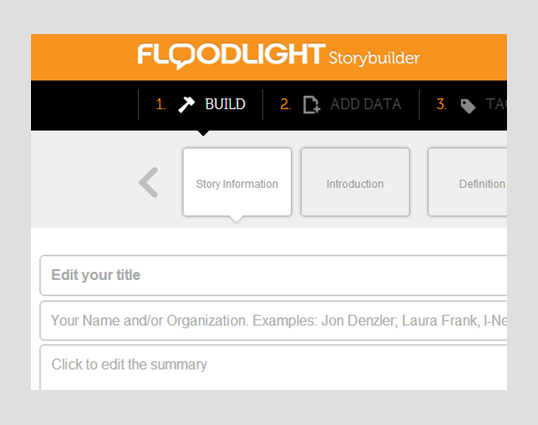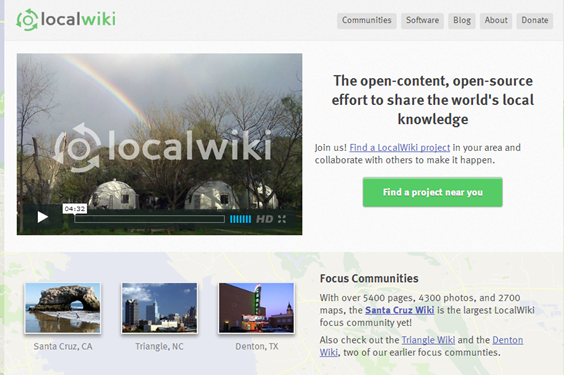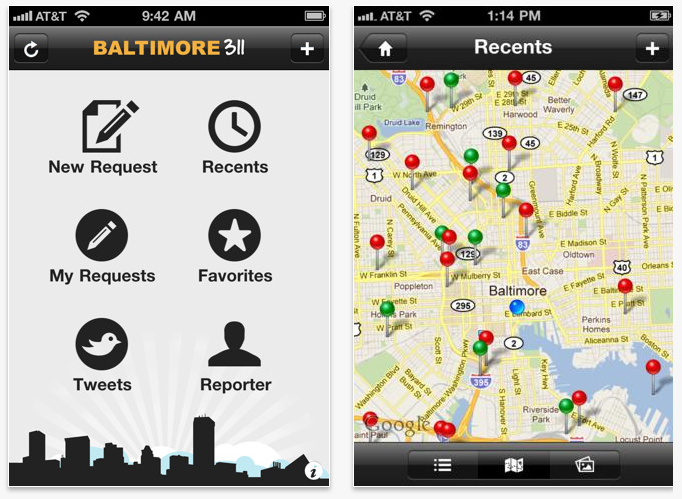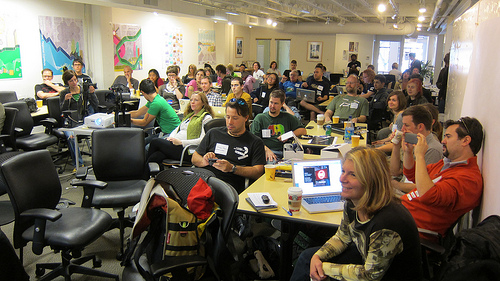Onramps to OpenGov: Getting started with open government, open data, and online civic engagement
The Knight Community Information Challenge's current theme -- OpenGov -- got me to wondering: how do you get started in open government/open data projects? I asked a few experts about good beginner projects that can serve as onramps to open government and open data projects that can fuel civic engagement.
1. Give people ways to contextualize civic data -- start with data, but end up with "data stories."

Data isn't always all that expressive all on its own. One great way to make civic data have real impact is to contextualize it -- taking data and making it into a "Data Story." The Floodlight Project, an initiative of Colorado's Denver and Piton foundations, has a web application that takes users step-by-step through the process of putting a story around the data. Users start with a screen like the one above, and are led through a five-step process, beginning with an overview and ending with a call to action, all with easy ways to embed photos, maps, and datasets along with their own explanations of what these mean in context. Another good example of this is the Rhode Island Data Hub, which lets visitors view "Data Stories" but also combines this with a wide-ranging catalog of public data from many different sources.
2. Let citizens combine their knowledge.
By now, most folks who have access to the Internet have seen a wiki, even if they don't know what one is -- because they've encountered Wikipedia. But what if you could have a locally-focused wiki that collected knowledge on everything from resources for teens at risk to the best place for an outdoor barbecue at a public park? LocalWiki is an open-source project that is active in many communities that lets residents do just that. It works on mobile phones, as well:

3. Focus on mobile as a way to connect residents with civic groups and programs.
Mobile phone penetration in the US is actually greater than 100% -- there are actually more mobile phones in the US than there are people. But not everyone has a smartphone. Text messaging remains the bedrock universal of mobile phone service, and along with simple mobile web apps, is the most accessible form of mobile information.
Open311 is an open-source application that many cities and counties across the United States have implemented to create on-demand access to information about public services. Open 311 can work as a text-messaging based service, via mobile web, and via traditional web-browsers. Here's one mobile web-app built for Baltimore:

4. Connect with the local tech community.
Apps are great -- but it's not possible for mission-driven nonprofits or professionals working in civic government to get far without strong ties to the local tech community. There's an unfortunate and untrue stereotype that all techies care about is the latest tech. That's not true, however -- techies are just as likely to care about education, the environment, and the place where they live as other residents are. One highly effective way to forge links between the tech community and civically engaged folks is to hold a "hack day" where members of the tech community are invited to come and spend a day engaging with civic data, meeting other civically engaged folks, and building tech tools.

Photo Credit: tantek via Compfight cc
Want to learn about other onramps to OpenGov? Sign up for the KDMC webinar happening May 15



